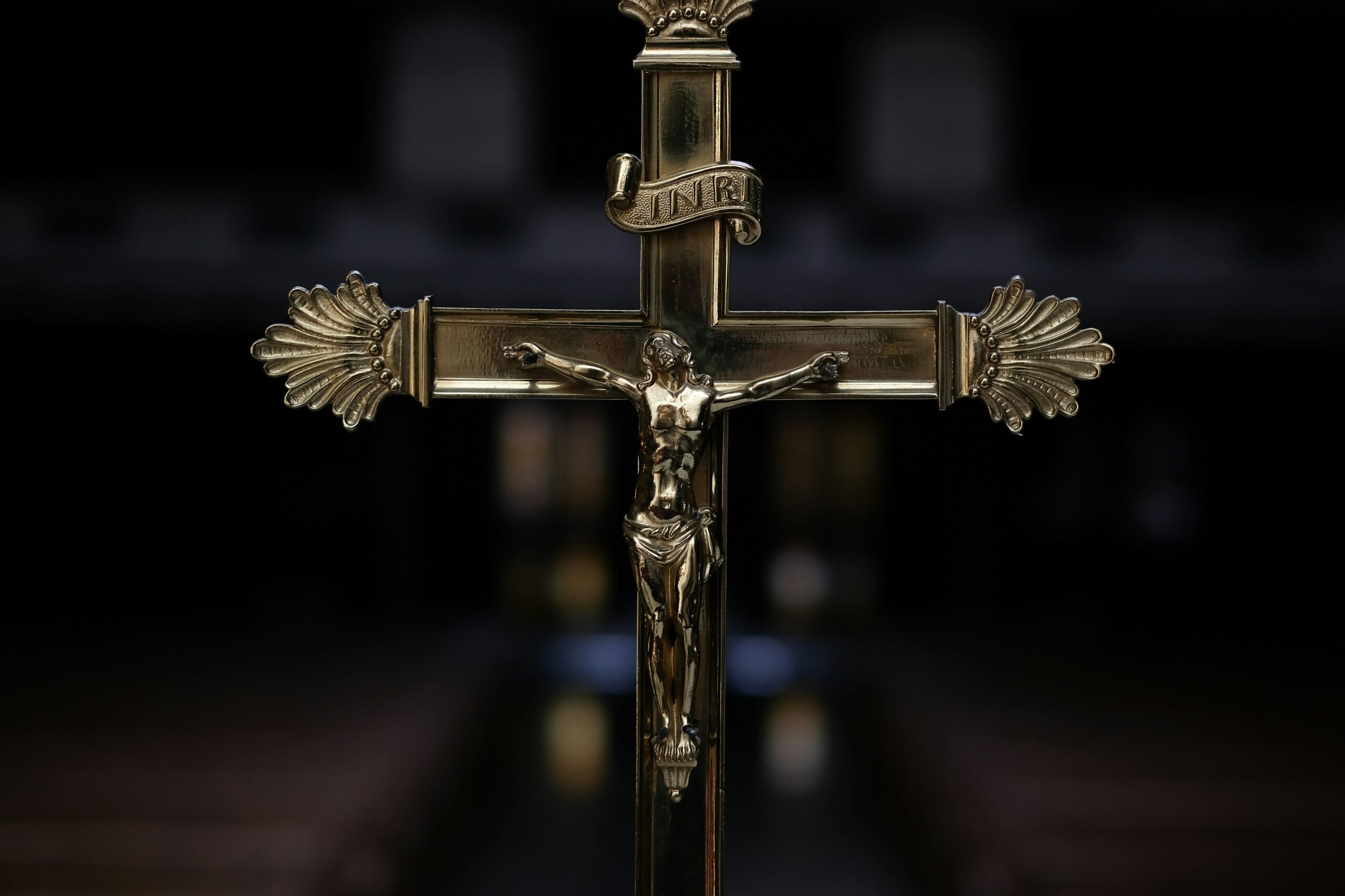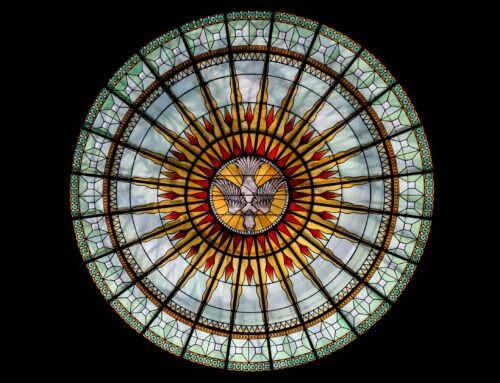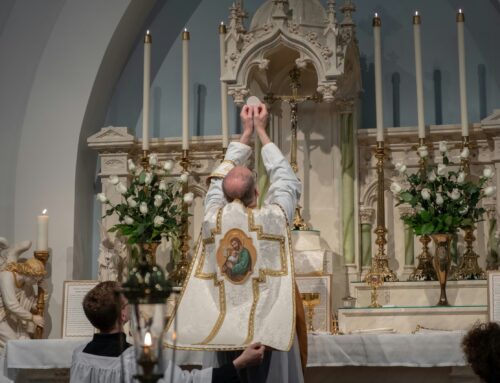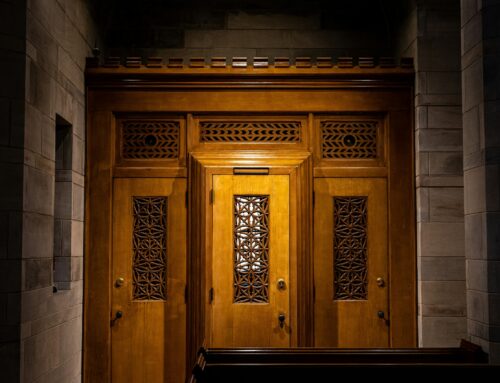As Catholics, we profess our faith through the recitation of the Nicene Creed during Mass. This ancient statement of belief encapsulates the core tenets of our faith and serves as a unifying symbol of our shared beliefs as Catholics. Let’s delve into the Nicene Creed and explore what it means to us as believers.
The History of the Nicene Creed
The Nicene Creed, also known as the Niceno-Constantinopolitan Creed, has its origins in the First Council of Nicaea in 325 AD, convened by Emperor Constantine in response to the Arian heresy. The Arians denied the divinity of Christ, claiming that He was a created being and not co-eternal with the Father. The Council sought to affirm the orthodox Christian belief in the divinity of Christ and the Trinity. The original Nicene Creed, as formulated at the Council, was a concise statement of faith that affirmed the key tenets of Christianity, including the belief in one God, the divinity of Christ, and the Holy Spirit. Over the centuries, the Nicene Creed underwent several revisions and additions, culminating in its final form at the First Council of Constantinople in 381 AD. This version, known as the Niceno-Constantinopolitan Creed, expanded on the original Nicene Creed to further clarify the Church’s beliefs in response to new theological challenges. Today, the Nicene Creed is recited by Catholics and many other Christian denominations as a summary of their beliefs.
The Meaning Behind the Tenants of the Nicene Creed
I believe in one God, the Father Almighty, maker of heaven and earth, of all things visible and invisible.
The Nicene Creed begins by affirming our belief in the one true God, who is the creator of all things. This statement emphasizes the fundamental monotheistic nature of our faith and acknowledges God as the ultimate source of all existence.
And in one Lord Jesus Christ, the only-begotten Son of God, begotten of the Father before all ages, God from God, Light from Light, true God from true God, begotten, not made, consubstantial with the Father;
Next, the Nicene Creed proclaims our belief in Jesus Christ as the only-begotten Son of God. This declaration highlights the divinity of Christ, emphasizing that He is of the same substance as the Father. This aspect of our faith is central to understanding the mystery of the Incarnation and the role of Jesus as our Savior.
Through him all things were made.
This statement reinforces the belief that Jesus Christ, as the Son of God, played a central role in the creation of the world. It underscores the divine power and authority of Christ, who is not only the Savior but also the creator of all things.
For us men and for our salvation he came down from heaven, and by the Holy Spirit was incarnate of the Virgin Mary, and became man.
Here, the Nicene Creed affirms the central Christian belief in the Incarnation – that is, the belief that Jesus, the Son of God, took on human flesh and became man for the salvation of humanity. This profound mystery underscores the depth of God’s love for us and His desire for our redemption.
For our sake he was crucified under Pontius Pilate, he suffered death and was buried, and rose again on the third day in accordance with the Scriptures.
The Nicene Creed recounts the key events of Jesus’ life, including His crucifixion, death, burial, and resurrection. These events form the foundation of our faith and are central to our belief in Jesus as the Messiah and Savior of the world.
He ascended into heaven and is seated at the right hand of the Father. He will come again in glory to judge the living and the dead, and his kingdom will have no end.
This statement affirms our belief in the exaltation of Christ, who ascended into heaven and is seated at the right hand of the Father. It also looks forward to the second coming of Christ, when He will return in glory to judge the living and the dead and establish His eternal kingdom.
I believe in the Holy Spirit, the Lord, the giver of life, who proceeds from the Father and the Son, who with the Father and the Son is adored and glorified, who has spoken through the prophets.
The Nicene Creed affirms our belief in the Holy Spirit as the third person of the Trinity, who proceeds from the Father and the Son. This statement highlights the role of the Holy Spirit in the life of the Church, as the one who empowers and guides us in our faith.
I believe in one, holy, catholic, and apostolic Church.
This statement affirms our belief in the Church as a unified body of believers, founded on the apostolic tradition and guided by the Holy Spirit. It emphasizes the essential role of the Church in proclaiming the Gospel and ministering to the world.
I confess one baptism for the forgiveness of sins and I look forward to the resurrection of the dead and the life of the world to come. Amen.
Finally, the Nicene Creed concludes with a declaration of our belief in the forgiveness of sins through baptism and our hope in the resurrection of the dead and the promise of eternal life. This statement underscores the ultimate goal of our faith – to be united with God in eternal communion.
In conclusion, the Nicene Creed is more than just a recitation of beliefs – it is a profound expression of our faith and a testament to the core truths that define us as Catholics. It serves as a reminder of the richness and depth of our faith and a call to live out these beliefs in our daily lives. As we profess our faith through the Nicene Creed, let us do so with conviction and understanding, knowing that these beliefs are the foundation of our identity as followers of Christ.
To explore the Catholic Faith even more deeply, listen live to Catholic radio.







Leave A Comment